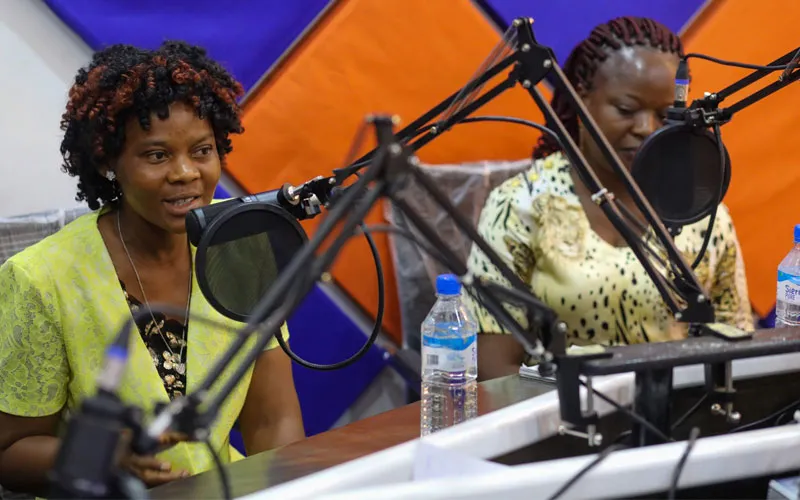In the March 31 report, country Director of SEND Sierra Leone, Joseph Ayamga, describes the establishment of the station as a wonderful move saying it will promote women’s participation in decision making in the West African country.
“SEND has been a partner of Trócaire and Irish Aid for years, to empower and promote women’s participation in decision making processes. Previously, women didn’t have a platform to discuss their rights, contributions and empowerment issues,” Mr. Ayamga says.
He adds, “These issues are often silent in traditional communities in Sierra Leone. We wanted to create a platform to give a voice to women so they can share whatever information they want to. It is wonderful to see it progress and we would love it if any Irish journalists would be willing to come and see our work and to help develop our skills.”
Minister for Overseas Aid and Diaspora, Colm Brophy TD, lauded the initiative saying that it is very important that the voices of the women are heard in Sierra Leone.
“When women’s voices are heard, they can influence the direction of their communities and play a full part in the development of their countries. That’s why community radio in Africa is so important,” Mr. Brophy said.
(Story continues below)
He added, “It presents an opportunity for women to voice their concerns and discuss the issues that affect them. This new radio station will give women in Sierra Leone the chance to discuss, debate and inspire each other to create a more equal society. It will allow women to share their experiences and collectively work towards further strengthening their voices.”
Trócaire officials have said that the station has many programs that touch on women’s issues, including news updates, panel discussions, live and pre-recorded interviews and music.
“We have a segment that profiles women and showcases their contributions to society, such as in engineering or in agriculture, and this is very important as many women listening would not be aware that women could have such roles,” the officials said.
They added, “We also have a health program that focuses on sexual and reproductive issues which can teach a lot of women about these issues. Our daily news programmes also keep women informed about upcoming issues and how they can become involved.”
Trócaire makes reference to the new gender equality and women’s empowerment bill under Sierra Leone’s ministry of gender and children’s affairs, which “is calling for 30 percent of parliamentary seats and cabinet positions to be held by women in the West African state.”
Media reports indicate that in Sierra Leone, with a population of almost eight million people, just 19 percent of local politicians are women, with only 13 percent at national level.
Silas Mwale Isenjia is a Kenyan journalist with a great zeal and interest for Catholic Church related communication. He holds a Bachelor’s Degree in Linguistics, Media and Communication from Moi University in Kenya. Silas has vast experience in the Media production industry. He currently works as a Journalist for ACI Africa.








